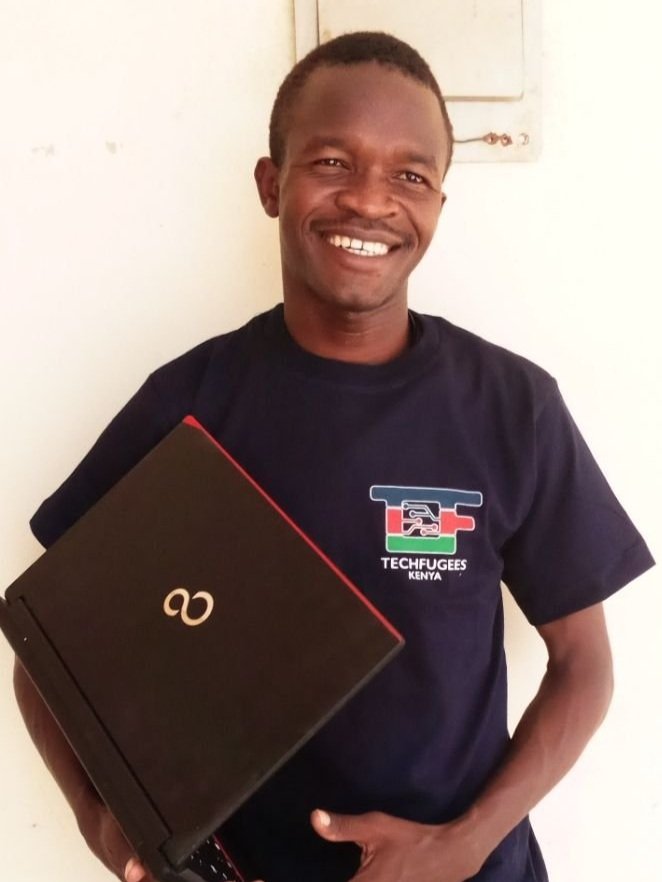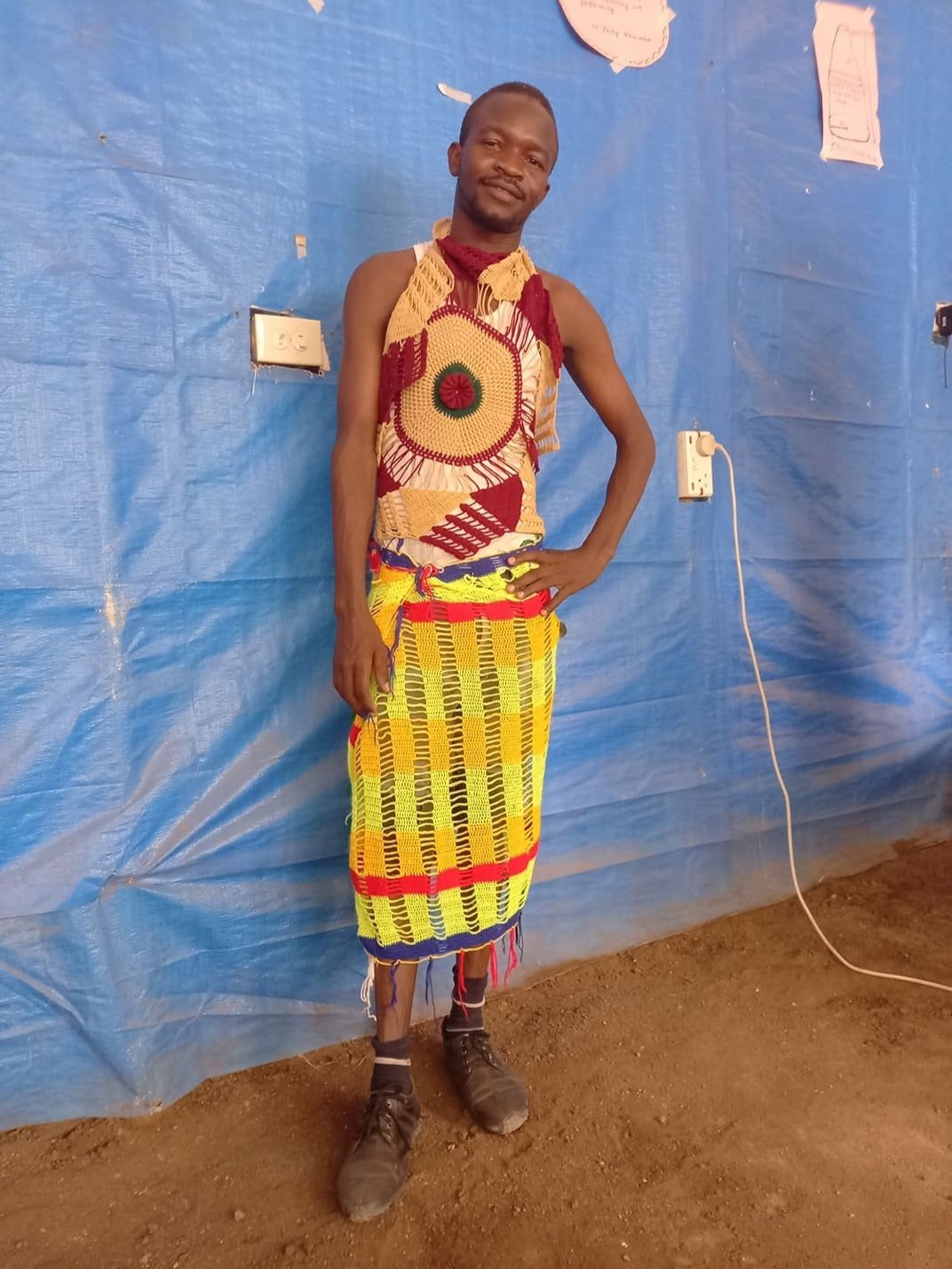From South Sudan to Kakuma; meet Idriss who completed his primary education twice before finding solace on the Amala High School Diploma
“Amala didn’t teach me how to read and write but taught me how to use my language to make the change.”
Idriss is one of our pioneering High School Diploma students in Kakuma, Kenya. Originally from South Sudan, he joined our Amala community when he applied to be a part of our first cohort in April 2021. Alongside his Amala studies, Idriss, spent his time volunteering at Community Based Organisation, Kakuma Vocational Centre (KVC). Through his introduction, Amala partnered with KVC to run our Changemaker Courses to reach more displaced youth in Kakuma. We have since run seven courses to 206 students with KVC! This August, Idriss will graduate from the 15 month Amala Diploma Programme alongside his classmates. We sat down with Idriss to hear more about his experiences on the Amala High School Diploma and his plans for what he will do after graduating.
1. How did you find out about Amala? What encouraged you to apply?
I heard about Amala in 2017, when it was called Sky School, and have followed it from there up to the time it changed the name to Amala. I remember when the first High School Diploma launched in Jordan, and I even applied to join at that time but an email came to me saying that you were not operating online or in Kenya yet, but I signed up to the Amala newsletter to stay updated.
I have always wanted to get a High School certificate and this encouraged me to apply. Joining Amala was a good choice I made. Amala Education is hope to me. I studied in three high schools, two in South Sudan in refugee camps and in Juba until the 2016 conflict forced me to flee to Kakuma, Kenya. When I reached Kakuma I was about to sit for the national high school exam but because of the difference in the school system I had to go back to primary school and sit for the Kenyan certificate of primary education. Because of my love of learning I attended and began all over again from Grade 1. However, some of my favourite subjects were missing from the Kakuma camp curriculum and I couldn't afford to go to national schools or business schools. The education system in the camp has been divided into morning and afternoon sessions; in which I attended the afternoon sessions, and then would go to vocational training in the morning. In 2021, when I was in Grade 3, the system changed and I had to attend full-day school but the big problem was I was also working to support myself. I felt stressed and had to choose between my school or my job. I wanted to build my future but I needed the job to support my living. I made the decision to continue with my job and save for school so that I could go back in the following year. In 2022 Amala opened applications and gave me a scholarship when I was in need and so I got the chance to join.
2. How did you feel when you started the course compared to now?
When I started the programme, I thought I would not be able to complete the courses and I was having ideas and experiences but I didn't know how to put them into work. Although I have worked with some community organisations, I was able to manage my workload but I was not as I am now. I joined Amala when also working in the field saving the community. In the programme I have now been able to learn and discover things that I haven't known before and I have used them and that has built my confidence in working with the community.
Amala has connected me with students from different parts of the camp which I have not met before, with them we created a good connection in which we share our thoughts and ideas
3. Do you feel more prepared to solve problems you may face in the community?
Amala didn't teach me how to read and write but taught me how to use my language to make the change. With Amala, I have been able to solve my problems but because problems tend to come up again and again, I have learned not to give up and I have hope and trust in myself which has helped my well-being. Amala has helped me discover what I don't know, it gives me the hope to use my ideas to make a change in the community.
4. What are your aspirations for the future?
We should know we cannot change anything if we don't understand it. Nothing is impassable, it is only that we don't know the correct/right formula to do the impassable. We should therefore never give up on our dreams and make good use of the opportunities we were given because there is someone out there who is sweating for it to happen for our future to be greater.
If our dreams keep on changing, never mind because we can't be fully satisfied with what to be because we are influenced by the opportunities in the community.
We should not give up on our dreams, try and fail but we should not fail to try, we would meet different types of people, others that can help us in our dream and others that would be using us to help them succeed and others that want to see us down, Let's be kind to ourselves and wise when working with the community, the future begins from now, we don't know what it is carrying or bringing, be ready.
5. Any final words?
With Amala, there is hope. By taking an Amala course you can discover many things you need to know, and you will learn about yourself, the community and the world.


